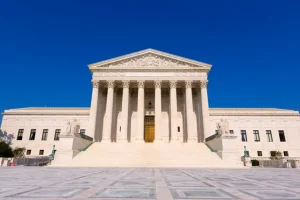New York City First-party Debt Collection Contact Rules are Changing
New York City already has some of the stricter rules in the nation when it comes to debt collection activities, however, effective October 1, 2025, they are changing again. One of the biggest changes is that first-party creditors, collecting on their own debt, will now fall under New York City’s definition of a “debt collector,” which was not clear to many in the past. These rules for collections in New York City likely impose requirements on first-party creditors they are not accustomed to. These rules include, but are not limited to, the number of communication attempts that can be made over a given period, disclosures that must be made, and requirements for contacting consumers at their place of employment.
Number of Attempts
Debt collectors are limited to no more than three communications in a 7-day period. This is an increase from the current limit of two per seven days. It’s important to note that calls, emails and/or text communications all count as an attempt. Court-ordered communications, failed communications (calls to disconnected numbers, bounced emails, etc.), and responding to a consumer’s request for contact do not count as an attempt.
Disclosure Requirements
When collecting a debt, debt collectors will now be required to make the mini-Miranda warning (e.g., “This is an attempt to collect a debt, and any information obtained will be used for that purpose.”) when contacting New York City residents. Historically, this disclosure was only required to be made by third-party debt collectors. Additionally, you must disclose the call is being recorded, if applicable.
Contacting Consumers at Work
Unless a consumer has indicated their work phone number or email address is their preferred contact method, a debt collector should determine if they know, or should know, they are using a consumer’s work-related contact information. For instance, if the consumer has provided their work number as a secondary contact number, or if the collector believes they have a work-related email address, those contact methods should not be used without obtaining the consumer’s consent to contact them there. If the collector could not have reasonably known it was their workplace contact information prior to reaching out, once notified by the consumer, the collector must obtain consent to continue to contact them at that number or email address.
Fines and penalties are not completely clear, but it appears they will be:
- First violation – $525
- Second violation – $1,050
- Third and subsequent violation – $3,500
This FAQ document is available to help answer questions about New York City’s collection rules.
CompliancePoint has a team of Marketing Compliance professionals that can help ensure your outreach campaigns comply with all applicable laws and regulations. Contact us at connect@compliancepoint.com to learn more about our services.
Finding a credible expert with the appropriate background, expertise, and credentials can be difficult. CompliancePoint is here to help.





